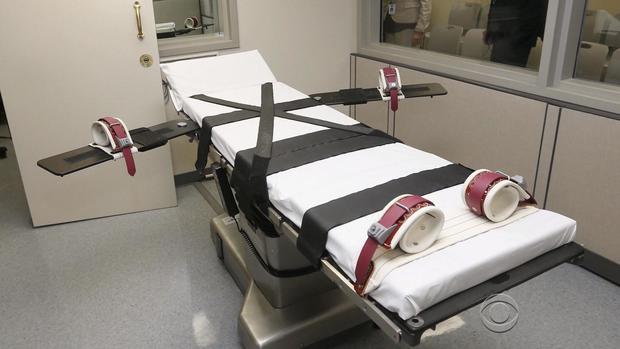Supreme Court rules on controversial lethal injections
WASHINGTON, D.C. -- The Supreme Court ended its term Monday with a sharply divided ruling on lethal injection drugs. In a 5-4 decision, the Court said a sedative used as a part of a drug cocktail was permissible. But the narrow question was just the beginning of a remarkable exchange between the Justices.
The Justices took up the case in the wake of a botched execution in Oklahoma, where death penalty opponents argued a drug used in lethal injections caused an unconstitutional risk of pain and suffering.
In his majority opinion, Justice Samuel Alito said there was no evidence the drug, "...entails a substantial risk of severe pain." Noting 12 executions using the same method went off, "...without any significant problems."
But Justices quickly moved beyond that narrow issue--to a contentious debate about the future of the death penalty.
Justice Stephen Breyer, joined by Justice Ruth Bader Ginsburg, used the case to urge the Court to reconsider its rulings allowing capital punishment, writing for the first time, "I believe it is highly likely that the death penalty violates the 8th Amendment," prohibiting cruel and unusual punishment.
- Supreme Court upholds Arizona's redistricting system
- Supreme Court rules against EPA on mercury power plant emissions
- Supreme Court seems divided over mercury limits
- Supreme Court will reconsider Texas affirmative action case
He added the death penalty was unreliable and arbitrary, saying there is evidence, "Indicating that courts sentence to death individuals who may well be actually innocent."
Fordham Law School professor Deborah Denno said Breyer was seeking to influence the national debate.
"If you have a justice making that large a claim in a key death penalty case then that is going to add to the debate. It is going to add to the conversation in a potentially very critical way."
The dissent triggered a sharp response from Justice Antonin Scalia, who said Breyer's dissent was, "Full of internal contradictions and (it must be said) gobbledy gook. That revealed an elitist, 'Let-them-eat-cake obliviousness' to the concerns of everyday Americans."
The Supreme Court has never suggested the death penalty is categorically unconstitutional. Solid majority on the court believe it is constitutional and it is a long way from striking it down.
Also today The Supreme Court ruled on refusing to allow Texas to enforce restrictions that would force 10 abortion clinics to close.
The justices voted 5-4 on Monday granting an emergency appeal from the clinics after a federal appeals court upheld new regulations and refused to keep them on hold while the clinics appealed to the Supreme Court.
The Court's order will keep all the clinics open while the justices decide whether to take up the case. Arguments would be next fall, the first major abortion case in decades and coming right in the middle of a presidential campaign.

